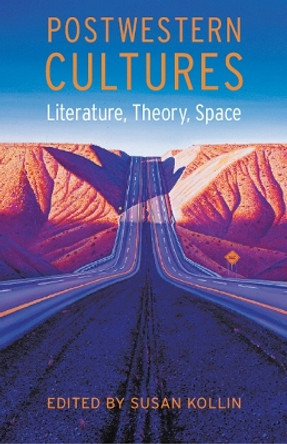Description
Tracing the transnational influences of what has been known as a uniquely American genre, "the Western," Susan Kollin's Captivating Westerns analyzes key moments in the history of multicultural encounters between the Middle East and the American West. In particular the book examines how experiences of contact and conflict have played a role in defining the western United States as a crucial American landscape. Kollin interprets the popular Western as a powerful national narrative and presents the cowboy hero as a captivating figure who upholds traditional American notions of freedom and promise, not just in the region but across the globe. Captivating Westerns revisits popular uses of the Western plot and cowboy hero in understanding American global power in the post-9/11 period.
Although various attempts to build a case for the war on terror have referenced this quintessential American region, genre, and hero, they have largely overlooked the ways in which these celebrated spaces, icons, and forms, rather than being uniquely American, are instead the result of numerous encounters with and influences from the Middle East. By tracing this history of contact, encounter, and borrowing, this study expands the scope of transnational studies of the cowboy and the Western and in so doing discloses the powerful and productive influence the Middle East has had on the American West.
About the Author
Susan Kollin is professor of English and director of the Center for Western Lands and Peoples at Montana State University. She is the editor of Postwestern Cultures: Literature, Theory, Space (Nebraska, 2007) and author of Nature's State: Imagining Alaska as the Last Frontier.
Reviews
"Captivating Westerns is a must-read because it persuasively situates the Western (and the West) in a global context, and teaches us how to read in a global context."-Gioia Woods, Western American Literature
"In exploring the post-9/11 Western in relation to the long and complex history of the cultural relationship between the U.S. West and the Middle East, Kollin makes a forceful case for the continuing relevance of western literary studies for understanding both how American empire is propagated and how it might be overcome."-Alex Trimble Young, Montana Magazine
"Immensely accessible and masterfully executed, this is a wonderful addition to Middle Eastern, Western American, and cross-cultural criticism/studies in general."-A. S. Newson-Horst, Choice
"Groundbreaking in its analysis. . . . This highly original perspective is timely as well as relevant in our post-9/11 world with its so-called war on terror and its volatile ethno-racial and gendered politics."-Stephen Tatum, author of In the Remington Moment
"Kollin presents a nuanced and brilliant discussion of intersections. . . . Most significant, the book is so engagingly and clearly written that anyone interested in analyses of the U.S. relationship to the Middle East would find it fascinating. . . . Stunningly original."-Melody Graulich, coeditor of Dirty Words in Deadwood
"Expertly analyzed. . . . We who have grown up on many a western motion picture, and have read a few books dealing with the fictional as well as the historical west, will appreciate this thought provoking book."-Chuck Parsons, Wild West History Association Journal
"An exuberant study of the transposings of the American West and the Middle East in diverse popular cultural expressions that re-circuits the 'Western' away from its moorings in both the U.S. West and Western power to remap how its conventions have been transnationally informed and transformed by circulations through Arab itineraries and Iranian iterations."-Timothy Marr, author of The Cultural Roots of American Islamicism
"[An] interesting and valuable study. . . . Kollin offers a compelling framework to consider for both established scholars and interested newcomers to the field."-Pawel Goral, Western Historical Quarterly
Book Information
ISBN 9781496214232
Author Susan Kollin
Format Paperback
Page Count 300
Imprint University of Nebraska Press
Publisher University of Nebraska Press









